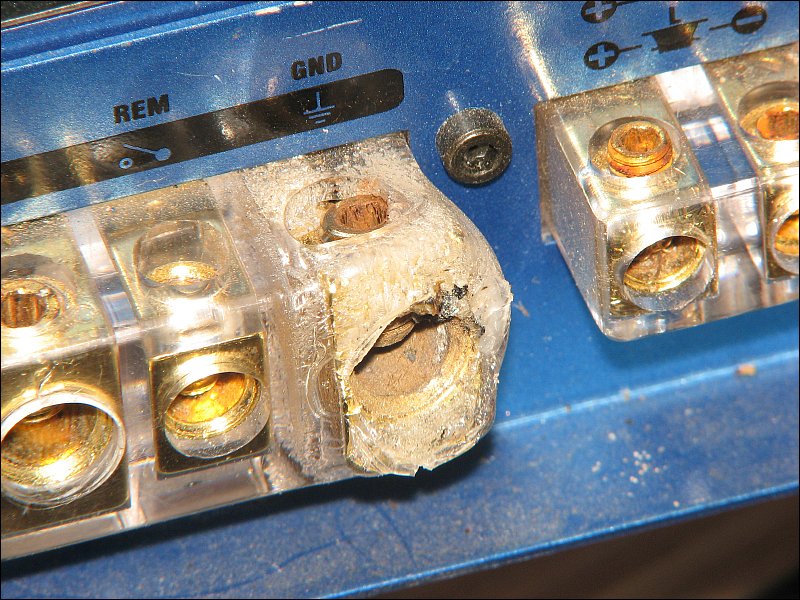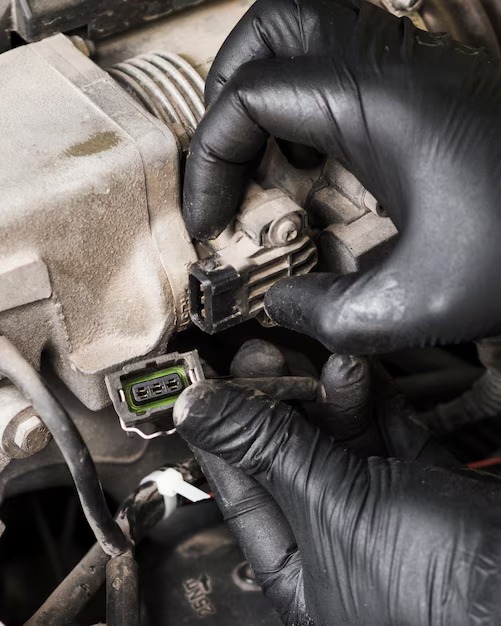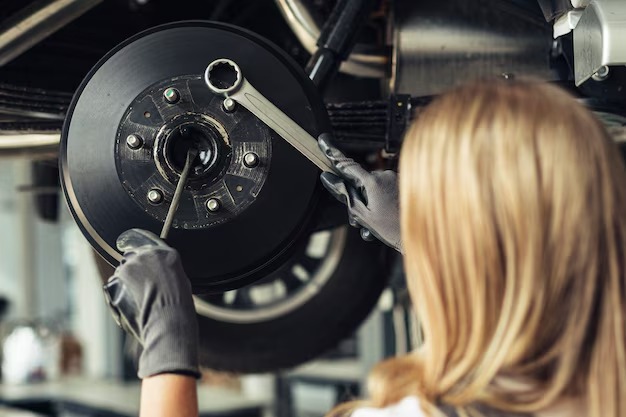Common Signs And Indications of a Faulty Ground in an Amplifier Bad Ground on Amp Symptoms Car Audio

Common signs and indications of a faulty ground in an amplifier bad ground on amp symptoms car audio
Amplifiers are an essential component of any audio system, providing the power needed to boost weak audio signals. However, like any electrical device, amplifiers require a solid ground connection to function properly. When the ground connection is compromised, it can lead to a variety of problems that can negatively affect the performance of your amplifier.
One common sign of a bad ground on amplifiers is a buzzing or humming sound. If you notice this noise coming from your amplifier when it’s turned on, it could be a clear indication that the ground connection is not working properly. The buzzing or humming sound is caused by electrical interference and can be quite distracting, especially when you’re trying to enjoy your music or other audio content.
Another common sign of a bad ground on amplifiers is distorted or weakened audio quality. When the ground connection is faulty, it can lead to a loss of signal integrity, resulting in a decrease in audio quality. You may notice that your music sounds muffled, harsh, or lacking in detail. This can be frustrating, especially if you’ve invested in a high-quality amplifier and speakers.
In addition, a bad ground on amplifiers can also cause your amplifier to overheat. When the ground connection is compromised, it can lead to an increase in electrical resistance, which in turn causes the amplifier to work harder to produce the desired output. This increased workload can generate excess heat, which can damage the internal components of the amplifier and reduce its lifespan.
Finally, a bad ground on amplifiers can also cause intermittent power issues. You may notice that your amplifier turns on and off sporadically, or that it fails to turn on at all. This can be frustrating and inconvenient, especially if you rely on your amplifier for everyday use. In some cases, the amplifier may even go into protect mode, automatically shutting down to protect itself from further damage.
In conclusion, a solid ground connection is crucial for the proper functioning of amplifiers. If you notice any of the common signs mentioned above, it’s important to address the issue as soon as possible. Check the ground connection, ensure that it is secure and properly connected, and consult a professional if necessary. Maintaining a good ground connection will not only improve the performance of your amplifier, but also prolong its lifespan, allowing you to enjoy your music with clarity and power.
Signs of a Bad Ground on Amplifiers common symptoms:
A bad ground can affect the performance and safety of your amplifier. Here are some common signs that indicate a bad ground:
1. Poor Sound Quality:
If you notice a significant decrease in sound quality, such as distorted or muffled audio, it could be due to a bad ground. The ground connection provides a stable reference point for the amplifier, and a poor ground can introduce noise and interfere with the signal.
2. Electrical Noise:
If you hear a buzzing or humming sound coming from your amplifier, it might be caused by a bad ground connection. Electrical noise can occur when the ground is not properly connected or there is interference from other electrical devices.
3. Overheating:
A bad ground can cause the amplifier to overheat. Heat is generated when the electrical current flows through the amplifier’s components, and a faulty ground can impede the proper flow of current. If you notice that your amplifier is getting excessively hot, it may be a sign of a bad ground.
4. Electrocution Hazard:
A bad ground can pose a safety hazard, especially if you come into contact with the amplifier’s metal chassis while it is powered on. An inadequate ground connection can cause the chassis to become electrified, which can result in electric shock if touched.
If you experience any of these signs, it is important to check and fix the ground connection on your amplifier. Ensure that the ground wire is securely attached to a metal part of the chassis or a designated ground point. It is also advisable to consult a professional technician for assistance if you are uncertain about how to properly ground your amplifier.
Distorted Sound Quality ground connection
One of the most common signs of a bad ground on an amplifier is distorted sound quality. When the ground connection is not properly established, it can cause interference and noise in the audio signal, resulting in a distorted sound.
Distortion can manifest in various ways, such as crackling, popping, or hissing sounds. You may notice that the music or audio coming from the amplifier sounds unclear, muffled, or distorted. Additionally, the overall sound quality may be affected, with a loss of detail, dynamics, and depth.
Distorted sound quality can be particularly noticeable at higher volumes or during quiet passages in the music. The distortion may worsen over time or become intermittent, making it difficult to pinpoint the exact cause. In some cases, the distortion may only occur when specific frequencies or instruments are being played.
To diagnose if a bad ground is causing the distorted sound quality, you can try the following steps:
- Check the ground connections: Ensure that the amplifier’s ground wire is securely connected to a proper ground point. Make sure the connection is clean and free from corrosion or other contaminants.
- Inspect the cables: Check the audio cables connecting the amplifier to the source device or speakers. Look for any physical damage or loose connections that could cause interference and impact the sound quality.
- Use a different power outlet: Plug the amplifier into a different power outlet to eliminate the possibility of a faulty electrical connection causing the distortion.
If the distorted sound quality persists even after checking the ground connections and cables, it may be worth consulting a professional audio technician or contacting the amplifier’s manufacturer for further assistance.
| Common Signs of a Bad Ground on Amplifiers |
|---|
| Distorted Sound Quality |
| Ground Loop Hum |
| Intermittent Power Issues |
| Ground Loop Interference |
| Electrical Shocks |
Intermittent Power Issues
One common sign of a bad ground on an amplifier is intermittent power issues. These issues can manifest as the amplifier turning on and off randomly or not turning on at all.
When there is a bad ground, the electrical connection between the amplifier and the power source becomes unstable. This can result in the amplifier losing power intermittently, causing it to turn off and on unpredictably.
Additionally, a bad ground can cause the amplifier to struggle to turn on in the first place. When the ground connection is weak or faulty, the amplifier may fail to receive the necessary power to start up properly.
If you suspect a bad ground is causing intermittent power issues with your amplifier, there are a few steps you can take to troubleshoot the problem:
- Check the grounding connections: Ensure that the amplifier’s ground wire is securely connected to a metal part of the vehicle’s chassis. If the connection is loose or corroded, tighten or clean it as needed.
- Inspect the power cable: Examine the power cable for any signs of damage, such as frayed wires or exposed insulation. Replace the cable if necessary.
- Test the power source: Use a multimeter to measure the voltage at the amplifier’s power and ground connections. If the voltage is significantly lower than the expected value, there may be an issue with the power source.
- Consider using a separate ground wire: If the amplifier’s ground connection is compromised, adding an additional ground wire directly from the amplifier to a metal part of the vehicle’s chassis can help improve the electrical connection.
By addressing any grounding issues and ensuring a stable electrical connection, you can resolve intermittent power issues with your amplifier and ensure optimal performance.
Overheating Amplifier
One common sign of a bad ground on an amplifier is overheating. When an amplifier overheats, it can cause serious damage to the internal components and reduce the overall performance of the amplifier.
There are several reasons why an amplifier may overheat. One possible cause is a faulty ground connection. If the amplifier’s ground connection is not properly established, it can create electrical resistance, which leads to increased heat buildup. This can happen if the ground wire is loose or not securely connected to a solid metal surface.
Another reason for an overheating amplifier is insufficient ventilation. Amplifiers generate heat during their operation, and if they are not properly ventilated, this heat can accumulate and cause the amplifier to overheat. It is essential to ensure that the amplifier has enough space around it for air to flow and dissipate heat effectively.
Additionally, using an amplifier at high volume levels for an extended period can also contribute to overheating. When an amplifier is pushed to its maximum capacity, it has to work harder, generating more heat in the process. This can be especially problematic if the amplifier is not designed to handle high power levels.
If you notice that your amplifier is overheating, it is crucial to address the issue promptly to prevent any further damage. First, ensure that the ground connection is secure and tightly connected. If necessary, reposition the amplifier or add cooling fans to improve ventilation. If the problem persists, it could indicate a more significant issue, such as a malfunctioning component, and it may be necessary to seek professional assistance.
In conclusion, overheating is a common sign of a bad ground on an amplifier. It can be caused by a faulty ground connection, insufficient ventilation, or using the amplifier at high volume levels. Addressing the issue promptly is crucial to prevent further damage and maintain the amplifier’s performance.
Unstable Speaker Connections
One of the common signs of a bad ground on amplifiers is unstable speaker connections. When the ground connection is compromised or poorly connected, it can lead to intermittent or unstable speaker connections. This can result in various issues, such as the audio cutting in and out, distorted sound quality, or complete loss of audio output.
Unstable speaker connections are often caused by loose or corroded ground wires, faulty connectors or terminals, or inadequate grounding points. When these issues occur, the amplifier may not be able to establish a reliable and consistent connection with the speakers, resulting in an unstable audio signal.
To troubleshoot unstable speaker connections, first, check the ground wire connections on the amplifier and ensure they are tight and secure. It is also important to inspect the connectors or terminals for any signs of damage or corrosion. If any issues are found, they should be repaired or replaced immediately.
In some cases, the grounding setup of the amplifier may be inadequate. Adding additional grounding points or using a proper grounding kit can help improve the stability of the speaker connections. It is also recommended to use high-quality cables and connectors to ensure a reliable and secure connection between the amplifier and speakers.
If the issue persists despite checking and repairing the ground connections, it is advisable to consult a professional technician or contact the manufacturer for further assistance. They will have the expertise and knowledge to diagnose and resolve the problem effectively.
| Common Causes of Unstable Speaker Connections |
|---|
| Loose or corroded ground wires |
| Faulty connectors or terminals |
| Inadequate grounding points |
Electrical Noise and Interference
Electrical noise and interference can cause significant issues in audio systems, including amplifiers. When the ground connection in an amplifier is bad, it can lead to electrical noise and interference that can be heard through the speakers. This can manifest as a variety of problems, such as buzzing, humming, or static sounds.
Electrical noise and interference can be caused by a variety of factors, such as poor grounding, electromagnetic interference (EMI) from nearby electronics, or even faulty components within the amplifier itself. These issues can degrade the audio quality and overall performance of the amplifier.
Common Sources of Electrical Noise and Interference
There are several common sources of electrical noise and interference that can affect amplifiers:
- Poor grounding: A bad ground connection can create a loop between the amplifier and other electrical components, causing noise and interference.
- EMI from nearby electronics: Other electronics, such as computers, lighting systems, or power cables, can emit electromagnetic interference that can be picked up by the amplifier.
- Faulty components: Within the amplifier itself, faulty components such as capacitors or resistors can create noise and interference.
- Ground loops: Ground loops can occur when there are multiple grounding points in an audio system, causing a difference in potential and resulting in noise and interference.
Effects of Electrical Noise and Interference
Electrical noise and interference can negatively impact the audio experience in several ways:
- Audio distortion: Noise and interference can cause the audio signal to become distorted, leading to a loss of clarity and fidelity.
- Background noise: Constant buzzing, humming, or static from electrical noise can be distracting and diminish the overall audio quality.
- Intermittent issues: In some cases, electrical noise and interference may only occur sporadically, making it difficult to diagnose and troubleshoot.
- Equipment damage: In rare cases, excessive noise and interference can damage sensitive audio equipment, such as speakers or headphones.
To mitigate electrical noise and interference, it is important to ensure proper grounding, separate electrical and audio cables, and minimize the proximity of other electronic devices to the amplifier.
| Symptom | Description |
|---|---|
| Buzzing or humming | Continuous or intermittent buzzing or humming sounds coming from the speakers. |
| Static noise | Crackling or static noise that persists even when the audio source is silent. |
| Ground loop hum | Low-frequency humming caused by a difference in ground potential between audio equipment. |
| Audio distortion | Loss of audio clarity and fidelity due to noise and interference. |
Damage to other Audio Equipment
One of the common signs of a bad ground on amplifiers is damage to other audio equipment. When the ground connection is not properly established, it can lead to electrical interference and cause harm to other components in your audio setup.
For example, if your amplifier has a faulty ground, it may send unwanted noise or static to your speakers or headphones. This can result in distorted sound quality and a frustrating listening experience.
Additionally, a bad ground can also damage other audio equipment connected to your amplifier, such as audio interfaces, mixers, or subwoofers. The electrical interference can disrupt the signals and potentially cause permanent damage to these devices.
It is important to address any issues with the ground connection on your amplifier as soon as possible to prevent further damage to your audio equipment. If you notice any of the common signs of a bad ground, such as excessive noise or distortion, it is recommended to consult a professional technician or seek assistance from the manufacturer to properly diagnose and fix the problem.
Remember, a proper ground connection is crucial for maintaining the integrity of your audio signals and protecting your equipment from potential damage.
Question-answer: Bad ground on amp symptoms
What could cause my car amplifier to get loose over time?
Vibrations from driving and changes in temperature can cause the amplifier and its connections to become loose over time.
How can I ensure proper grounding around the amplifier in my car?
Make sure the area around the amplifier is clean and free of debris, and securely fasten the ground cable to a suitable grounding point on the car chassis.
What are the consequences of improper grounding on a car amplifier?
Improper grounding can lead to various issues, including noise interference, poor sound quality, and potential damage to the amplifier and other components of the car audio system.
How can I test the receiver in my car stereo system?
Use a multi-meter to check the voltage output of the receiver and ensure it is functioning properly. Additionally, test the receiver with different audio sources to confirm its functionality.
Why is a ground cable important for a car amplifier?
The ground cable provides a path for electrical current to flow safely to the ground, preventing electrical hazards and ensuring the proper functioning of the amplifier.
What steps should I take if my amplifier is clipping?
Check the power wire and ground cable connections to ensure they are secure and properly connected. Adjust the gain settings on the amplifier as needed to prevent clipping.
How can I prevent issues with the antenna wire in my car stereo system?
Routinely inspect the antenna wire for any signs of damage or wear, and securely fasten it to the receiver to prevent interference and signal loss.
What should I do if I suspect a bad ground on my amplifier but cannot locate the issue?
Consult a professional car audio technician who can use specialized equipment to diagnose and repair the problem with the amplifier’s grounding.
How can I address issues with the power wire in my car amplifier?
Ensure the power wire is securely connected to the battery and properly fused to prevent electrical hazards. Replace any damaged or worn sections of the power wire as needed.
Why might an amplifier overheat even with proper grounding?
In addition to grounding issues, factors such as inadequate ventilation and excessive power draw can contribute to amplifier overheating. Ensure the amplifier is installed in a well-ventilated area and that it is not being pushed beyond its power limits.
What are the symptoms of a bad ground on an amp?
Symptoms of a bad ground on an amp can include amplifier clipping, overheating, and even burning of the amplifier.
How can you properly ground an amp in a car’s audio system?
To properly ground an amp in a car’s audio system, ensure that your amp’s ground is securely connected to a clean, metal surface on the car’s chassis.
What are some common symptoms of bad ground on a car amp?
Some common symptoms of bad ground on a car amp include amplifier clipping, overheating, and the amplifier going bad.
How do bad or improper grounding affect the amp?
Bad or improper grounding can cause the amp to go bad, leading to symptoms such as overheating and burning of the amplifier.
What steps can car owners take to prevent bad ground problems in their amp?
Car owners can prevent bad ground problems in their amp by ensuring that the ground cables and power cables are properly connected and that the ground terminal is clean and secure.
How can you confirm that the ground on your amp is properly connected?
To confirm that the ground on your amp is properly connected, you can use a multimeter to test the continuity of the ground connection.
What should you do if you suspect a bad ground on your amp?
If you suspect a bad ground on your amp, you should inspect the ground connection for any signs of damage or corrosion, and repair or replace the ground cable if necessary.
What are the consequences of having a bad ground on your car amplifier?
The consequences of having a bad ground on your car amplifier can include amplifier clipping, overheating, and ultimately the amplifier going bad.
Why is it important to use a ground cable of sufficient length when installing an amp?
It is important to use a ground cable of sufficient length when installing an amp to ensure that the ground connection remains secure and that the amp functions properly.
How can you test the receiver properly after connecting the amp?
After connecting the amp, you can switch it on and test the receiver to ensure that it is functioning correctly and that there are no issues with the audio output.






